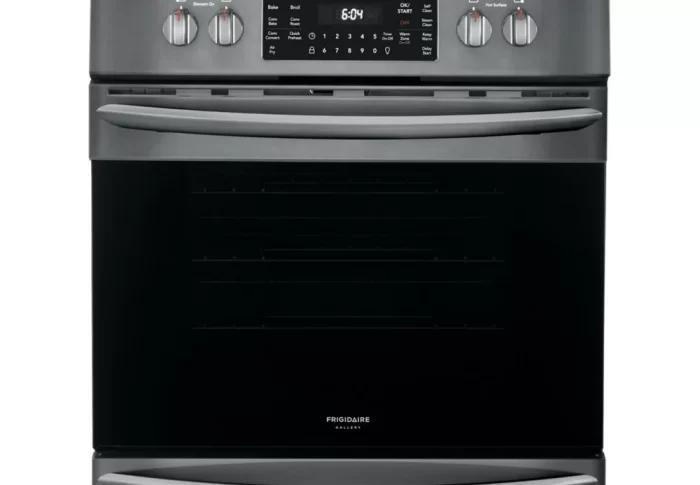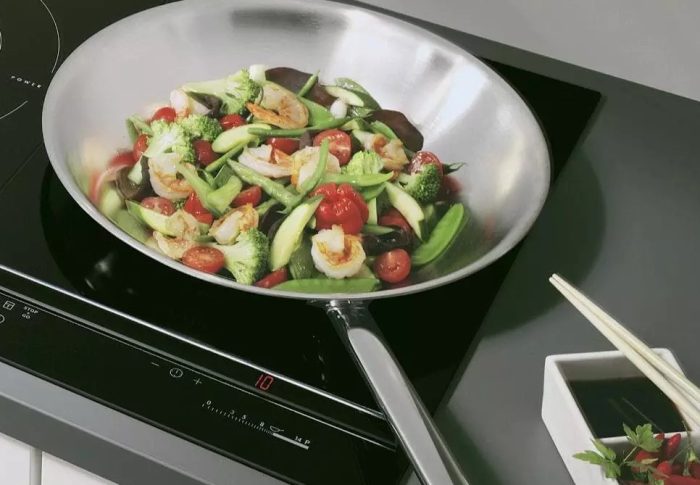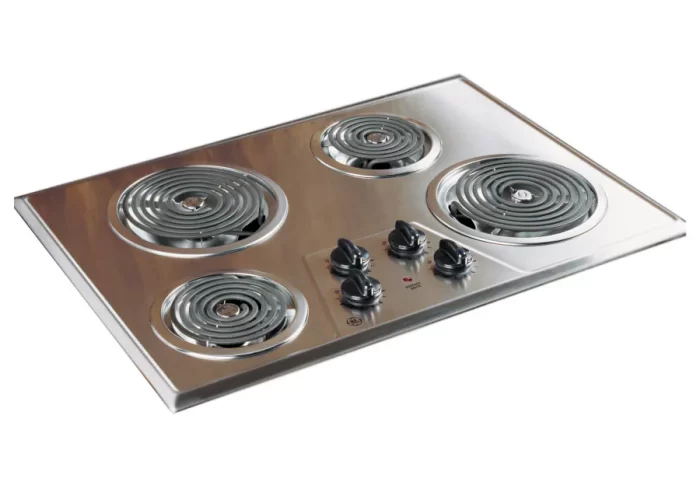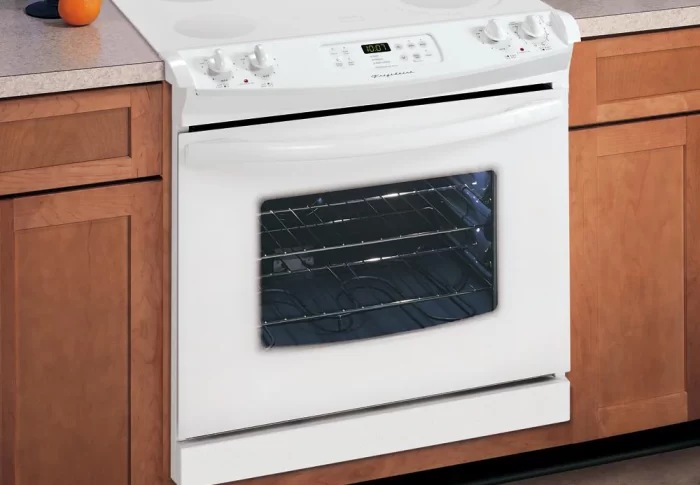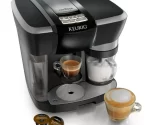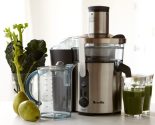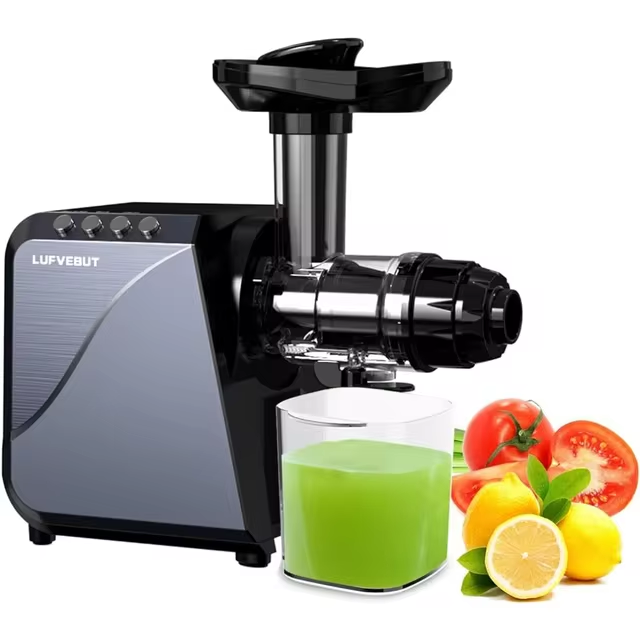
Cold Press or Centrifugal Juicer: Which Suits You Best?
Introduction to Juicing and Juicer Types
The world of juicing offers a range of appliances for extracting liquid goodness from fruits and vegetables. Among these, cold press and centrifugal juicers stand out as popular choices. Each has its unique method of juicing, and understanding the differences is key to selecting the right one for you.
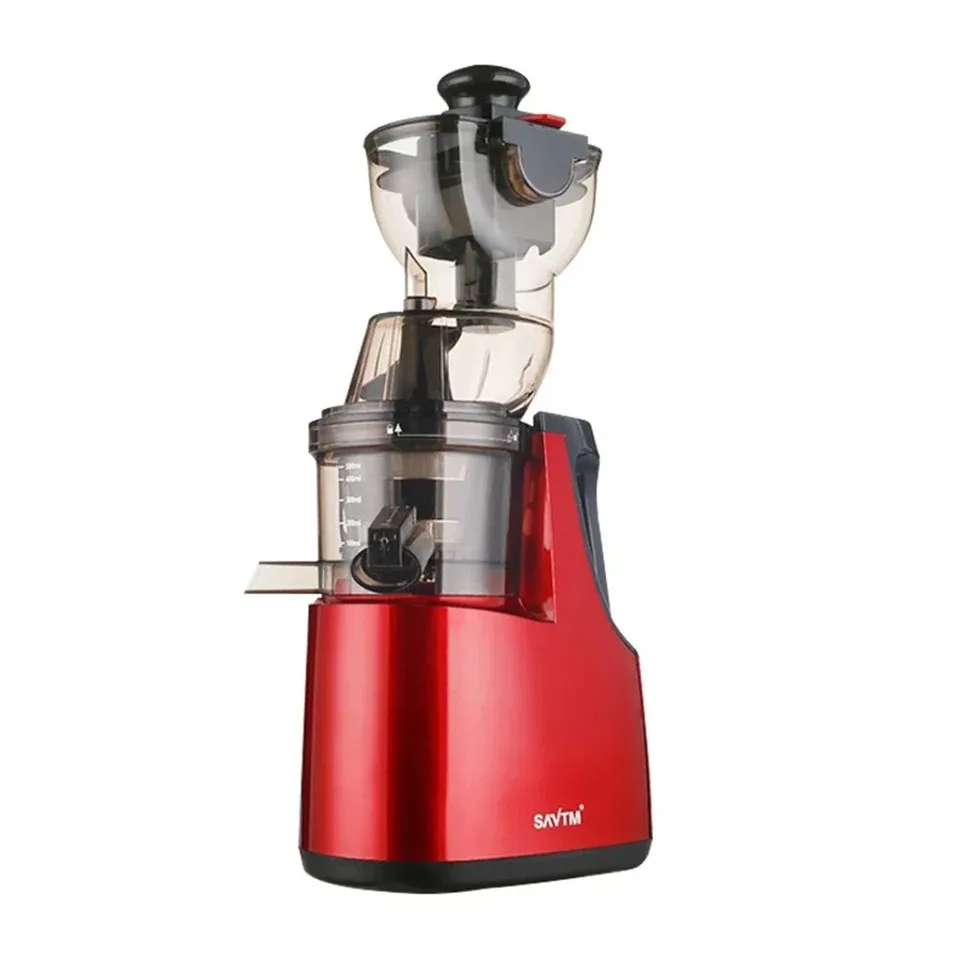
Cold press juicers, also known as masticating or slow juicers, operate by crushing and then pressing fruits and veggies for high-quality juice extraction. This process is gentle and minimizes heat, thus preserving nutrients. Many health enthusiasts prefer these for their ability to handle leafy greens and tougher produce with ease.
Centrifugal juicers work quite differently. They use fast-spinning blades to chop up produce, which is then flung against a mesh filter at high speeds. This separation process is efficient and fast, making this type the go-to for many people due to its convenience and speed.
Before delving into the specifics of each juicer type, consider the importance of juice quality, nutrient retention, shelf life, ease of use, maintenance, and budget. These factors will influence your decision and ensure that you choose a juicer that aligns with your lifestyle and health goals.
What is a Cold Press Juicer?
Cold press juicers, or masticating juicers, gently compress fruits and vegetables to extract juice. They grind produce at low speeds, producing minimal heat. This process preserves nutrients, yielding high-quality juice. Cold press juicers are ideal for extracting juice from leafy greens, wheatgrass, and dense fruits.
Benefits of Cold Pressed Juicers
Benefits of a cold press juicer include:
- Maximized Nutrient Retention: The slow juicing process means less heat and air exposure, keeping more vitamins and enzymes intact.
- Higher Juice Yield: They typically extract more juice from the same amount of produce, reducing waste.
- Versatility: Besides juicing, they often handle tasks like making nut milk or sorbets.
- Quiet Operation: They operate silently compared to other juicers, making them kitchen-friendly.
- Dry Pulp: The dry pulp by-product indicates efficient juice extraction.
Disadvantages of Cold Press Juicers
Despite their advantages, cold press juicers have some drawbacks:
- Higher Cost: They are generally more expensive than centrifugal models.
- Slower Process: Their slow juicing method can be time-consuming.
- More Prep Work: Some models require produce to be cut into smaller pieces before juicing.
- Heavier and Bulkier: They can be heavy and take up more counter space.
- Pulpy Juice: The juice may contain more pulp, which some users might not prefer.
Understanding Centrifugal Juicers
Centrifugal juicers use fast-spinning blades to juice. They’re beloved for their speed and ease.
Advantages of Centrifugal Juicers
Centrifugal juicers boast of fast juicing times, convenient usage, and larger feed chutes which reduce prep time. They are typically more affordable and effective for juicing hard produce like carrots and apples. Here’s a summary of their benefits:
- Speed: They juice quickly, perfect for busy individuals.
- Ease of Use: Simple to operate, with minimal buttons or settings.
- Less Preparation: Large feeding chutes mean less cutting and chopping.
- Cost-Effective: Generally cheaper than cold press models.
- Easy Clean-Up: Many have dishwasher-safe parts.
Cons of Using a Centrifugal Juicer
While convenient, centrifugal juicers also come with downsides. These include:
- Oxidation: High speeds mean more air exposure, leading to faster juice oxidation.
- Heat: The fast blades can heat, potentially reducing nutrient levels.
- Shorter Shelf Life: Juices don’t last as long due to faster oxidation.
- Noise: They can be louder than cold press juicers.
- Leafy Greens: Struggle with extracting juice from greens and soft fruits.
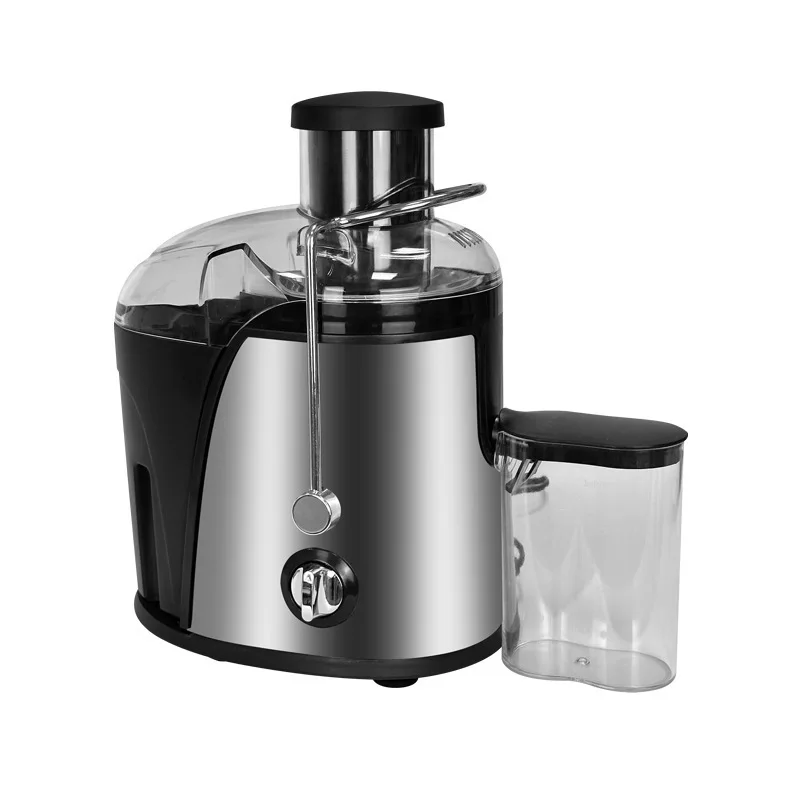 Comparing Juice Quality and Nutrient Retention
Comparing Juice Quality and Nutrient Retention
When you’re choosing between a cold press and a centrifugal juicer, understanding the impact on juice quality and nutrient retention is crucial.
Cold Press Juicers & Nutrient Retention
Cold press juicers operate at slower speeds, which means less heat and less oxidation. This low-heat, low-oxidation process helps preserve delicate vitamins and enzymes in your juice. The outcome is often a more nutritious and better-tasting juice, with a vibrant color that speaks to its quality. Typically, you’ll get richer flavors and a thicker consistency, ensuring a more wholesome juice experience.
Centrifugal Juicers & Nutrient Retention
Centrifugal juicers are speedy, which might come at the cost of some nutrient degradation. The fast blades and high speed introduce more air into the juice, leading to higher oxidation rates. While this doesn’t completely strip away the nutritional value, it might reduce some vitamins and enzymes that are sensitive to heat and oxidation. The juice tends to be lighter and less full-bodied, but it makes for a quick, refreshing drink.
Choosing between these juicers depends on what you prioritize — the highest nutrient content with a cold press unit, or speed and convenience with a centrifugal model. Both will provide fresh juice, but the cold press option edges out in retaining the maximum health benefits from your fruits and vegetables.
Considering Juice Shelf Life and Oxidation
When it comes to juicing, shelf life and oxidation are key factors that influence your choice. The way you store your juice and how long it retains nutrients matter.
Juice Shelf Life: Cold Press vs Centrifugal
Cold press juicers produce juice with a longer shelf life. Slow extraction means less air and heat, slowing oxidation. Juices can last up to 72 hours in the fridge.
Centrifugal juicers make juice that’s best enjoyed quickly. Due to more heat and air exposure during high-speed juicing, the juice oxidizes faster. It’s ideal to drink it within 24 hours.
Impact of Oxidation on Juice Quality
Oxidation affects the color, taste, and nutrient content of juice. Since cold press juicers limit oxidation, the juice looks vibrant and tastes fresh longer.
In centrifugal juices, oxidation turns juice brown and alters taste sooner. Nutrients start breaking down, reducing the health benefits. Less oxidation in cold-pressing keeps nutrients intact longer.
To sum up, for juice with longer shelf life and less oxidation, cold press is preferable. If immediacy and convenience are your priorities, centrifugal juices work well but with a shorter lifespan.
Evaluating Ease of Use and Maintenance
Ease of Use Factors
When evaluating the ease of use between cold press and centrifugal juicers, consider the following aspects:
- Setup and Operation: Cold press juicers may demand more initial preparation as some require fruits and vegetables to be chopped into smaller pieces, while centrifugal juicers typically handle whole items with less prep due to larger feeding chutes.
- Learning Curve: Centrifugal juicers are straightforward and user-friendly, making them ideal for beginners, whereas cold press juicers might take time to master due to their slow-processing nature.
- Speed: For those with a busy lifestyle, centrifugal juicers offer quick results—ideal for a fast-paced environment. Cold press juicers are slower but promise higher nutrient retention and quality.
Maintenance Considerations
Maintenance of your juicer is crucial for its longevity and performance:
- Cleaning Process: Many centrifugal juicers come with dishwasher-safe parts for convenient cleaning, but cold press juicers often require hand washing due to their complex components which need careful handling.
- Frequency of Use: If you juice often, opt for a juicer that is easy to clean and assemble. Cold press juicers take more time in both set-up and cleaning but yield more juice, whereas centrifugal juicers are the go-to for their quick operation and clean-up.
- Durability: Cold press juicers generally have fewer moving parts and last longer, potentially offsetting their higher cost over time, while centrifugal juicers are less expensive but might need replacing sooner.
To conclude, both juicer types offer benefits in ease of use and maintenance. Your preference will depend on how much time you’re willing to invest in preparation, learning, and cleaning, versus how important quick and convenient operation is to your daily routine.
Cost Analysis and Budget Considerations
When choosing between a cold press and a centrifugal juicer, cost is a significant factor. Here’s a breakdown of the financial aspects to consider:
Initial Purchase Price
Cold press juicers are generally more expensive due to their complex mechanism that preserves more nutrients. Centrifugal juicers offer a more wallet-friendly price, making them a common choice for those on a budget.
Long-Term Savings
Though cold press juicers have a higher upfront cost, they often lead to savings over time. They extract more juice from produce, meaning you’ll buy less produce in the long run. Additionally, their durable build typically requires fewer replacements or repairs compared to centrifugal juicers.
Operational Costs
Consider the energy consumption and the cost of replacement parts. Cold press juicers use less power and have fewer parts that may need replacing. Centrifugal juicers may cost less initially, but their faster motors can consume more electricity, and the need for frequent blade replacements can add up.
Juice Yield and Consumption
If you consume juice frequently, a cold press juicer might be more economical. The higher juice yield and nutrient retention can enhance the health benefits you get from your produce investment.
Resale Value
Cold press juicers often retain higher resale values due to their longevity. If you decide to upgrade your juicer, you may get back a more significant portion of your initial investment with a cold press model.
In summary, while centrifugal juicers may appear less expensive initially, the total ownership cost of a cold press juicer can be lower when considering the yield, energy efficiency, and long-term use. Your juicing habits, frequency, and the importance of juice quality should guide your budget considerations.
 Conclusion: Making the Right Choice for Your Lifestyle
Conclusion: Making the Right Choice for Your Lifestyle
When choosing a juicer, think about your daily routine, health goals, and budget. Cold press juicers offer nutrient-rich juice with a longer shelf life, making them great for health-focused individuals. They cost more but save money in the long run through efficient juice extraction and durability.
Centrifugal juicers are fast, user-friendly, and budget-friendly, perfect for busy lifestyles and beginners. They work well for those who prefer quick juice making and easy clean-up, despite the shorter shelf life of the juice.
Weigh the pros and cons of each juicer type. Consider juice quality, nutrient retention, shelf life, ease of use, maintenance, and cost. Your choice should enhance your juicing experience and fit within your lifestyle habits.
Whether you go for a cold press or centrifugal juicer, both will add value to your healthy diet. The important thing is to start juicing and enjoy the benefits of fresh, homemade juice every day.

